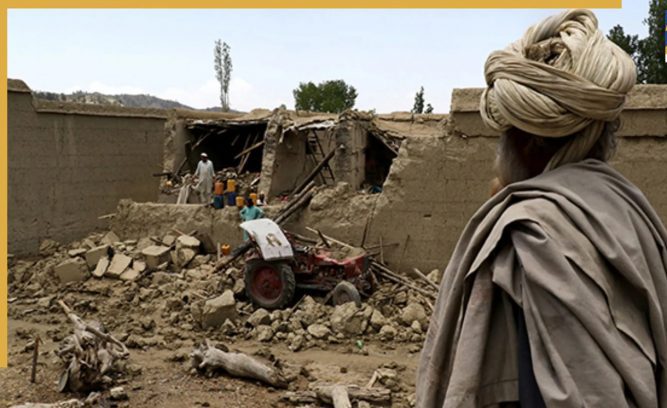Pakistani jets struck Afghanistan’s Paktika province just hours after a ceasefire extension, reigniting deadly border tensions despite ongoing peace talks in Doha.
Islamabad / Kabul / Doha — In a dramatic setback to regional diplomacy, Pakistan launched new airstrikes inside Afghanistan’s Paktika province on Friday, only hours after both nations agreed to extend a fragile 48-hour ceasefire, according to News18, citing TOLO News.
Pakistani military aircraft reportedly targeted residential areas in the Argun and Barmal districts of Paktika — near the volatile Durand Line, the disputed frontier dividing the two countries.
So far, no casualties have been confirmed, but local Afghan officials said the strikes violated the truce and risked reigniting full-scale hostilities.
Ceasefire Undermined Within Hours
The renewed air assault came even as Islamabad and Kabul pledged to maintain calm until the conclusion of peace talks in Doha, where delegations from both governments are meeting to de-escalate border clashes.
Diplomats in Doha described the situation as “extremely fragile,” warning that Pakistan’s latest operation could collapse the truce entirely.
“Both sides had agreed to hold fire until negotiations concluded,” a source close to the talks said. “This escalation makes confidence-building almost impossible.”
Echoes of Earlier Strikes
Friday’s bombardment follows a series of Pakistani airstrikes in Kandahar province earlier in the week, targeting the border town of Spin Boldak.
Islamabad claimed those strikes killed dozens of Afghan Taliban fighters, though the figures have not been independently verified.
Afghanistan’s Defence Ministry spokesperson Enayatullah Khowarazmi confirmed that civilian areas in Spin Boldak were also struck, accusing Pakistan of “indiscriminate bombing of residential zones.”
Border Violence Escalates
Fighting along the Pakistan–Afghanistan border — one of the most volatile fault lines in South Asia — has escalated sharply since October 11, marking the worst confrontation in years between the two neighbours.
According to Afghan officials, at least 58 Pakistani soldiers have been killed in retaliatory attacks against what they describe as “repeated Pakistani violations of airspace and sovereignty.”
Pakistan’s military disputes those claims, saying it has lost 23 soldiers but killed over 200 Taliban and allied militants in counteroffensives along the frontier.
Mutual Accusations of Terror Support
The current crisis is rooted in long-standing mutual distrust.
Islamabad accuses the Taliban-led Afghan government of harbouring militants from the banned Tehreek-i-Taliban Pakistan (TTP), a group responsible for dozens of deadly attacks inside Pakistan.
Kabul has rejected the allegations, insisting that “Afghan soil will not be used against any country.”
However, analysts say the Taliban’s ambiguous stance toward the TTP — combined with cross-border strikes and retaliations — has pushed both sides dangerously close to open war.
Diplomacy in Doha: A Fading Hope
Negotiators meeting in Doha, Qatar, where the temporary ceasefire was extended earlier this week, are now racing to prevent the conflict from spiraling further.
Western and Gulf diplomats involved in the process expressed concern that repeated violations are eroding trust on both sides.
“Without restraint, there is no pathway to a durable truce,” one mediator said. “Each strike makes dialogue harder.”
As night fell over the Durand Line, both nations remained on high military alert, with fresh air patrols and artillery exchanges reported in several border sectors.
What was meant to be a pause for peace now risks becoming the prelude to a new regional flashpoint — one that could destabilize South Asia’s fragile security balance.





